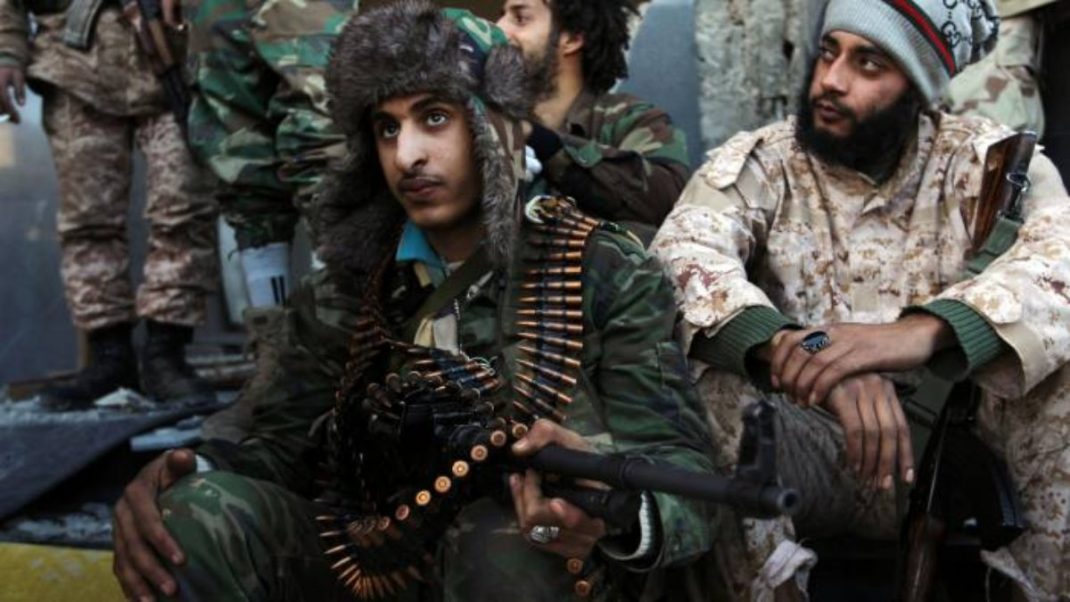By Heba Saleh
War-weary Libyans should have had reason to hope after Isis was finally pushed out of its stronghold of Sirte and the country doubled its oil production. But a renegade general who appears ever closer to Russia is putting the rare progress at risk as he seeks to expand his territory in the north African state.
Tensions have escalated as General Khalifa Haftar’s self-styled Libyan National Army (LNA), which controls eastern Libya, has pushed southwards, clashing with militias from the western city of Misurata who are loyal to the UN-backed government and led the fight against Isis in Sirte. This month, LNA warplanes attacked a southern air base controlled by the Misurata forces.
Diplomats and analysts warn the violence threatens to reignite civil war, allow jihadis to regroup and jeopardise the Opec member’s oil production, which this month hit 750,000 barrels a day, up from 300,000 barrels in September.
The Misurata militias finally drove Isis out of the coastal city of Sirte in December after a long battle, supported by US air strikes. “The LNA’s push south is very provocative and very dangerous,” says a western diplomat. “There is a mainstream view in Misurata that having defeated Isis at Sirte at huge cost, they will not facilitate a campaign to establish a military dictatorship under Haftar.”
Western diplomats deem Gen Haftar to be the chief obstacle to the implementation of a UN- brokered accord that aims to unify the country under the Tripoli-based government and a presidential council headed by Fayez al-Sarraj. But in a further sign of Moscow’s attempt to expand its influence across the Middle East, Gen Haftar was recently invited aboard a Russian aircraft carrier in the Mediterranean, from where he held a video conference with Sergei Shoigu, Russia’s defence minister.
The general, who says he is against Islamists of all hues, also enjoys backing from Egypt and the United Arab Emirates, which share his hostility to groups such as the Muslim Brotherhood. The country has been plagued by instability and conflict since an uprising against Muammer Gaddafi, the late dictator, erupted in 2011.
Gen Haftar pushed westwards last year, capturing crucial oil export facilities after forging alliances with local tribes. That enabled petroleum to flow again after the general allowed repairs to installations. But the renewed fighting could force the closure of export facilities — an outcome that would be disastrous for the weak Tripoli authorities already struggling to provide basic services.
The oil revenue goes to the central bank in Tripoli, which funds the salaries of civil servants and loyal militias across the country. Political deadlock over the past year has weakened the government of Sarraj, which is blighted by internal divisions and faces challenges from Tripoli-based groups linked to a former administration.
Power cuts, a liquidity crisis and the soaring cost of the dollar on the black market have added to its woes.
Neighbours, including Egypt, have been floating initiatives to to end the fighting, but so far Gen Haftar has refused dialogue. His rivals in the east are considering proposals to give him a role as commander of the Libyan army, but under the authority of civilian leaders. Ashraf al-Tulty, a spokesman for the presidential council, says the body is open to amending the stalled UN-brokered accord under which it was formed. “We encourage the leaderships of both sides to meet and discuss all pending issues,” Mr Tulty says.
But Claudia Gazzini, senior Libya analyst at the International Crisis Group, argues that it may be too late. She says Gen Haftar and his supporters probably feel they have more to gain by rejecting a compromise. “A year ago I would have said he was delusional, but the mood has changed, especially in the west, and there is a lot less support of Sarraj and his government,” she says.
“Haftar is capitalising on time passing and anarchy increasing in Tripoli.” Analysts also point to Gen Haftar’s deepening relationship with Russia. After his tour of the aircraft carrier, his spokesman announced that Moscow would supply spares for Russian weapon systems used by his LNA.
The general is also counting on a change in Washington’s attitude with Donald Trump, who has vowed to eradicate Islamist terrorism, in the White House, analysts say. “If Haftar can have Egyptian, Russian and Emirati support and get the acquiescence of the Trump administration, then he has the backing of all the powers that matter,” says Mattia Toaldo, senior policy fellow at the European Council for Foreign Affairs. But he adds that because of the fighting between rival factions, “we will see more jihadism in Libya”. “Whether it will be Isis or someone else it is not clear, but the challenge is to keep a minimum of stability to prevent jihadi groups from emerging,” Mr Toaldo says.
***
Heba Saleh – Cairo and North Africa Correspondent of the Financial Times.
______________




